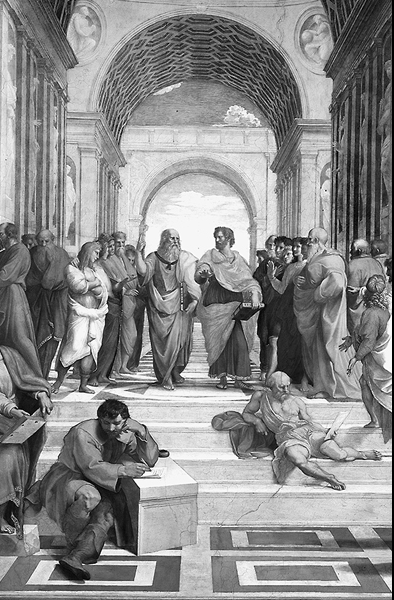There’s a kind of calm that reigns in many workplaces—a silence mistaken for alignment, an absence of resistance mistaken for trust. But this calm isn’t peace. It’s fear. It’s submission. And it has far more to do with Hobbes’ Leviathan or Orwell’s Big Brother than with truly inspiring leadership. This oppressive silence stems from managers who, like distrustful sovereigns, govern their teams with surveillance and control.
Some managers, even today, rule like sovereigns who mistrust their teams, their processes, and, deep down, themselves. Their toolkit is simple: surveillance, micromanagement, humiliation disguised as feedback, and anxiety-driven incentives. They claim to seek efficiency—but what they want is obedience.
This isn’t leadership. It’s a theater of control.
The Corporate Leviathan
When Hobbes wrote Leviathan in 1651, his worldview was grim yet pragmatic. Without a central authority, chaos would reign—a war of all against all. His solution? A sovereign with absolute power, installed by the people’s will, to protect them from themselves.
Today, this logic has found its way into boardrooms and project teams. The executive becomes a Hobbesian sovereign: unquestionable, unshakable, obsessed with maintaining order and control at any cost. Where Hobbes feared war, the modern manager fears autonomy. They fear becoming irrelevant. They see delegation as weakness, not competence.
And so, like the Leviathan, they impose control—not just over the work, but over the worker. Decision-making is centralized. Processes become weapons. Autonomy is treated as an operational risk, with micromanagement a mandatory tool for “success.” Chaos must be avoided—even if it costs every trace of creativity, dissent, or innovation.
A system based on fear doesn’t sustain life. It may prevent conflict, but it stifles creativity and innovation. It doesn’t create citizens—it creates subjects. It doesn’t foster collaborators—just cogs in a machine.
Orwell in a Polo Shirt
If Hobbes built the body of control, Orwell described its soul—a culture where fear shapes not just behavior, but thought. In 1984, Big Brother doesn’t just punish dissent—he rewrites language to make it impossible. Surveillance isn’t just about seeing what you do—it’s about ensuring you know you’re being watched.
In the modern workplace, this manifests not in telescreens, but in dashboards, cameras on, and email monitoring. Status always green. Slack messages used as legal documents. Employees become characters in a behavioral simulation. Every word carefully chosen. Every opinion carefully measured.
Disagreeing isn’t collaboration—it’s being “misaligned.” Questioning decisions isn’t improving—it’s being “resistant.” Burnout is repackaged as “commitment.” Suffering becomes a performance metric (KPI).
Fear as a Strategy
Fear is fast. Trust is slow. That’s why weak leaders choose fear.
Fear compels, but its results are illusory. While the surface shines with conformity, the culture silently rots, often unnoticed by leadership. Conformity pretends to be collaboration. Deliverables happen, but without soul. Without trust. And the real cost of fear doesn’t show up in quarterly reports. It’s in the loss of innovation, the silence of disengaged teams, and the quiet exit of top talent.
From Philosophy to Dysfunction: Leviathan, Orwell, and Lencioni
If Hobbes provided the body of control and Orwell its soul, Lencioni diagnosed its practical consequences in modern teams. His five dysfunctions aren’t accidents—they’re symptoms of a culture poisoned by fear.
Dystopia doesn’t arrive with sirens. It settles in with politeness. First, people stop speaking. Then, they stop disagreeing. Trust vanishes. Feedback dies. And dysfunction becomes the norm. Patrick Lencioni mapped this collapse with surgical precision:
- Absence of Trust
- Fear of Conflict
- Lack of Commitment
- Avoidance of Accountability
- Inattention to Results
These aren’t random failures. They’re direct consequences of a culture ruled by fear. Where the Leviathan commands and Big Brother watches, Lencioni’s dysfunctions emerge not as isolated symptoms but as natural outcomes of a corporate culture that has perished.
What the Leviathan Never Understood
The Leviathan believed control was the antidote to chaos. What if it’s the opposite? True leadership doesn’t fear autonomy. It cultivates it. It doesn’t dominate through fear. It builds through trust. It values healthy conflict and celebrates critical thinking. Leaders who encourage open debates, like at Pixar, or promote autonomy in agile teams show that controlled chaos breeds innovation, not destruction.
Fear-based management works—for a while. But the price is steep: burnout, turnover, stagnation. You either control people or empower them. Never both. And no organization survives when its best talent falls silent, fades away—and eventually joins the competition.
If you’re not building psychological safety, you’re accumulating psychological debt. To abandon the Leviathan, start small: listen to your team, celebrate disagreements, and trade dashboards for dialogue.


